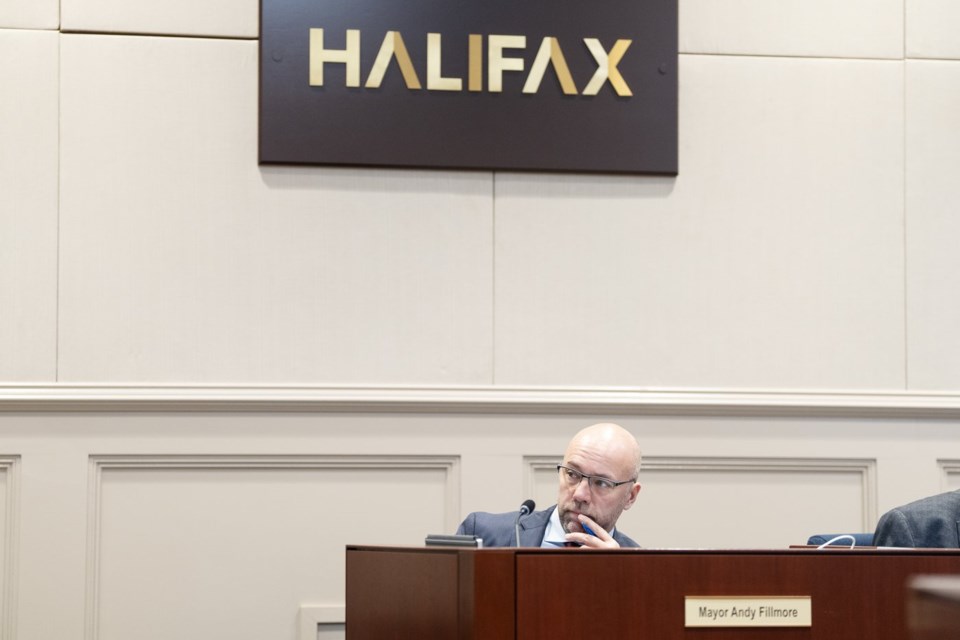HALIFAX — The Nova Scotia government should be cautious as it considers giving mayors more power — authority that could create a “mini American presidency" in communities across the province — says a political scientist.
Tom Urbaniak, a political scientist at Cape Breton University, said the province would be wise to wait and see how stronger mayoral authority plays out in Ontario municipalities before following suit.
“In our world today, where democracy is very much at risk, I'm going to respectfully advise caution about major (government) restructuring that was not on the agenda when people last voted,” Urbaniak said in an interview Monday.
Nova Scotia Premier Tim Houston said Thursday his government is looking at strengthening mayoral powers, citing a disconnect between the needs of residents and the recent decisions taken by Halifax council.
Currently, all elected councillors in Nova Scotia — including mayors — have a single vote on councils.
In 2022 Ontario began granting more power to mayors. Now 215 mayors and heads of councils can propose bylaws and pass them with the support of one-third of councillors. They can also veto bylaws and hire and fire department heads.
“It's sort of like a mini American presidency, but actually with less congressional oversight. So we need to be very, very careful,” Urbaniak said.
Houston said Thursday he is both "looking at" the possibility of strong-mayor powers and considering using a bill that has passed — but not yet entered into force — to overrule Halifax council’s recent decision to move ahead with a bike lane on a south-end city street.
“The only people that don't seem to be concerned about the traffic in HRM (Halifax Regional Municipality) are the HRM council," Houston said.
"I think those are the types of things that give the ordinary people on the street pause for thought .... There's a serious, serious disconnect right now between serving the citizens of Halifax and the decisions that council is making,” he added.
Last week, Halifax’s city council voted 16-one to require Mayor Andy Fillmore to ask the Nova Scotia government to hold consultations before strengthening mayoral authority. Only Fillmore voted against the motion.
Coun. Sam Austin presented the motion and told council that a move toward strong-mayor powers would undermine councillors' ability to adequately represent their constituents. Austin said putting so much power into one person’s hands is “deeply problematic," and Coun. Janet Steele said strong-mayor powers could mute the other voices on council.
“It’s moving towards almost authoritarianism, it’s not the way we want to go. These are slippery slopes. I for one don’t want to be sliding down that slope,” Steele said during the meeting on Thursday.
Fillmore says the strong-mayor model doesn't erode democracy, but instead sharpens its edge. In an emailed statement Monday, Fillmore said Halifax’s fast-growing population needs “the most effective system possible” to serve residents, and he would hope any potential change in structure would improve democratic accountability, not diminish it.
“Currently Halifax has a weak mayor system which is not in the interests of the thousands of voters across the municipality who vote in mayoral elections,” Fillmore said.
Urbaniak said a strong-mayor model has the potential for department heads to be chosen based on loyalty to the mayor as opposed to experience and expertise. The political scientist said if a mayor were able to make significant council decisions without majority approval from council, there would be “no mechanism for reining in the mayor.”
“You could have mayors defying councils, grinding against their councils over and over and again. Complete chaos in local governance, and you still have to wait four years before the public can get a say and clear up the mess.”
Last week, Municipal Affairs Minister John Lohr told reporters he had an informal conversation about strong-mayor powers with Halifax’s former mayor Mike Savage over a dinner in 2021, adding that Savage indicated that he did not want those powers.
This report by The Canadian Press was first published July 14, 2025.
Lyndsay Armstrong, The Canadian Press



